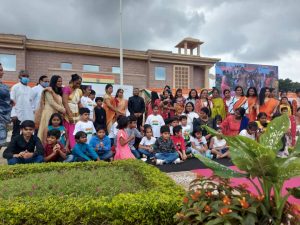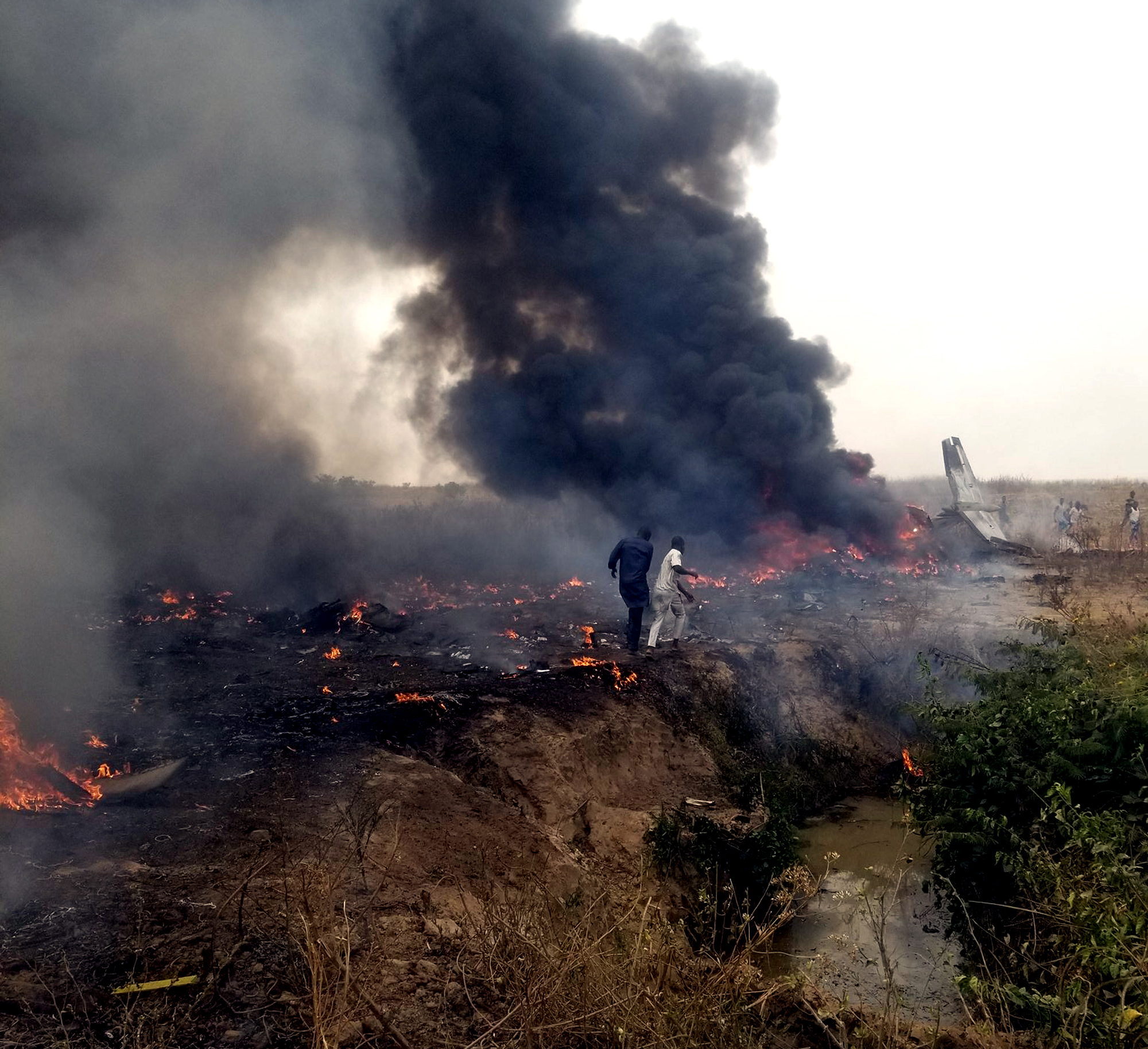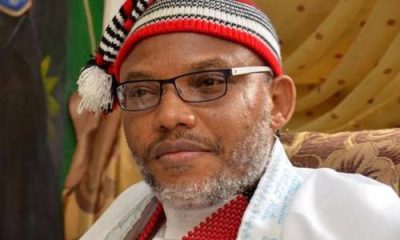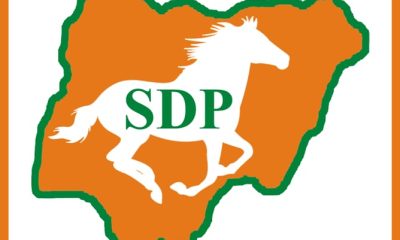Foreign News
India, Nigeria Working Closely to Counter Terrorism, Tackle Radicalisation – Envoy

Mr Abhay Thakur, Indian High Commissioner to Nigeria said on Sunday that India was working closely with Nigeria to tackle insecurity by fighting terrorism and radicalisation in the country.
Thakur disclosed this while answering reporters’ questions on the sidelines of the commemoration of the 75th Independence Anniversary of India at the high commission in Abuja.
He said India would continue to support Nigeria’s security and defense agencies in tackling banditry and other related crimes.
According to him, India and Nigeria have enjoyed years of friendship dating back since independence of both countries.
The Indian envoy said both countries would sustain the friendship across all sectors.
“There are a number of counter-terrorism initiatives both in terms of security exchanges and capacity building.
“Counter-terrorism is a key area of training for the Nigeria military.
“We are also jointly developing an Improvised Explosive Device detector which will work at a standoff range of 15 metres.
“There is just one example of joint defense research to counter-terrorism both sharing cyber terrorism.
“We have had very important visits of Nigeria’s defence and security establishments to India in the past two years.
“All heads of agencies, all heads of security establishments have met. We are working together to tackle radicalism in all our discourse.
“India and Nigeria have really stood by each other both at the United Nations and in building bilateral relations,” Thakur said.
He said India had a thriving trade relationship with Nigeria.
According to the high commissioner, India is happy with the achievements it has recorded in the past 75 years.
He added that the time had come for stock-taking, to see what more it could achieve in the next 25 years when it would mark 100 years of independence..
Thakur said that India had built great multilateral and bilateral relations with other countries and world bodies.
“It is a very momentous occasion because it is the 75th Independence day when we are commencing formally the year-long celebration of India at 75.
“And as the President of India has said in his speech, we should look at what we will do in the next 25 years and where we want to be; how do we progress to the 100th Anniversary in 2047.
“So it is a time for stock-taking, looking forward, celebrating, and also charting the way forward.
“It is an important day to renew our friendship with our diasporas, with our friends across the world.
Mr Elvis PannerSelver, President, Indian Cultural Association in Abuja lauded the cultural relationship between India and Nigeria.
“The India-Nigeria relationship is a very friendly and good one. I have been here in this country for almost 21 years.
“I am married to a Nigerian woman and we have four Children between us.
“Today, many Nigerian families have come to celebrate with us. We see Nigeria as our home also.
“Doing business in Nigeria is very smooth and the Nigerian government is supportive.
“So, there is no problem doing business in Nigeria,” PannerSelver said. (NAN)
Foreign News
Australian Researchers Launch Open-source, Affordable DNA Measurement Device

Australian researchers have created an affordable, open-source device to measure DNA levels using parts made with a standard 3D printer.
The Do-It-Yourself Nucleic Acid Fluorometer (DIYNAFLUOR) offers an affordable alternative to expensive commercial DNA fluorometers, often out of reach for many researchers.
This is according to a statement released on Wednesday by Australia’s University of Queensland (UQ), which led the research.
Fluorometers, vital for DNA sequencing, which itself is essential for disease detection, therapeutic innovation, and species identification, can now be easily built at home.
Thanks to the simple, accessible device developed by UQ’s Australian Institute for Bioengineering and Nanotechnology (AIBN), the statement said.
The device can be built in under a day for around 60 Australian dollars (about 39 dollars) using off-the-shelf electronics and 3D-printed parts.
It’s with free instructions online and no need for advanced skills or specialised tools, said the designer of the device, Will Anderson, at the AIBN.
Once built, the device quantifies DNA by using a light beam to produce a fluorescent response from the dyed DNA present in the sample.
It would then report the DNA concentration to a connected computer, Anderson said.
“This is crucial information that can tell you whether you can proceed with more expensive tests and sequencing,” he added.
Laboratory tests confirmed the device matches the accuracy and sensitivity of costly commercial models, offering an affordable, open-source solution for researchers in resource-limited, remote, or educational settings, said the study.
Foreign News
Trump Imposes 25% Tariff on Indian Goods, Criticizes Ties with Russia

U.S. President Donald Trump said he is imposing a 25 per cent tariff on goods from India starting on Friday.
Writing on his Truth Social platform, Trump sharply criticises New Delhi for its military and energy ties with Russia.
He described India as a “friend” but accused the country of maintaining unfair trade practices that disadvantage U.
S. businesses.India has “strenuous and obnoxious” trade barriers that keep its markets closed to companies, he wrote, adding that its tariffs are “far too high.
”Trump also took aim at India’s relationship with Russia, saying: “They have always bought a vast majority of their military equipment from Russia, and are Russia’s largest buyer of ENERGY, along with China.
In addition to the new tariff, Trump said India would face a financial “penalty” for its purchases from Russia, though he did not provide further details.
Foreign News
Zelensky Announces New Draft Law on Anti-corruption Bodies after Protests

Ukrainian President Volodymyr Zelensky said he has approved the text of a draft law guaranteeing the freedom of two anti-corruption bodies in Ukraine – days after nationwide protests broke out over changes curbing their independence.
Kyiv’s Western partners had also expressed serious concerns over the legislation.
On Thursday, Zelensky seemed to backtrack, saying the new bill was intended to safeguard the independence of Ukraine’s National Anti-Corruption Bureau (Nabu) and Specialised Anti-Corruption Prosecutor’s Office (Sap), and to protect them from Russian influence.
He said the text of the bill was “balanced”, but did not provide any details.
The law passed earlier this week brought Nabu and Sap under the control of the prosecutor general, who is appointed by the president.
At the time Zelensky justified his decision to curtail the bodies’ powers by citing Russian influence. The day before, Ukraine’s security services had carried out searches and arrests targeting alleged Russian spies at the agency.
The passing of the legislation instantly sparked the largest protests since the start of Russia’s full-scale invasion in February 2022 in several cities across Ukraine, with many worrying the law would severely undermine the Nabu and Sap’s authority and effectiveness.
Thousands of people gathered in streets and squares across Ukraine, holding placards calling for the legislation to be vetoed.
Several commentators accused Zelensky of democratic backsliding. Their concerns were further exacerbated when Ukraine’s Western partners signalled their displeasure with the bill.
Ukraine has official EU candidate status and a spokesman for European Commission chief Ursula von der Leyen previously warned Kyiv that the rule of law and the fight against corruption were “core elements” of membership to the bloc.
On Thursday, the Commission said it “welcomed” the Ukrainian government’s decision to take action against the bill.
“We are working [with the Ukrainian government] to make sure that our concerns… are indeed taken into account,” the spokesman said.
Nabu and Sap were created in 2014-15 as one of the requirements set by the European Commission and International Monetary Fund to move towards a relaxation of visa restrictions between Ukraine and the EU.
Writing on Facebook, opposition MP Oleksiy Goncharenko noted Zelensky said that “the independence of anti-corruption institutions must be guaranteed.”
“First we take it away, and then we say that it must be guaranteed. So why was all this necessary?”
In his message on social media on Thursday, Zelensky did not acknowledge the protests or the backlash but said it was “important that we respect the position of all Ukrainians and are grateful to everyone who stands with Ukraine.”






























